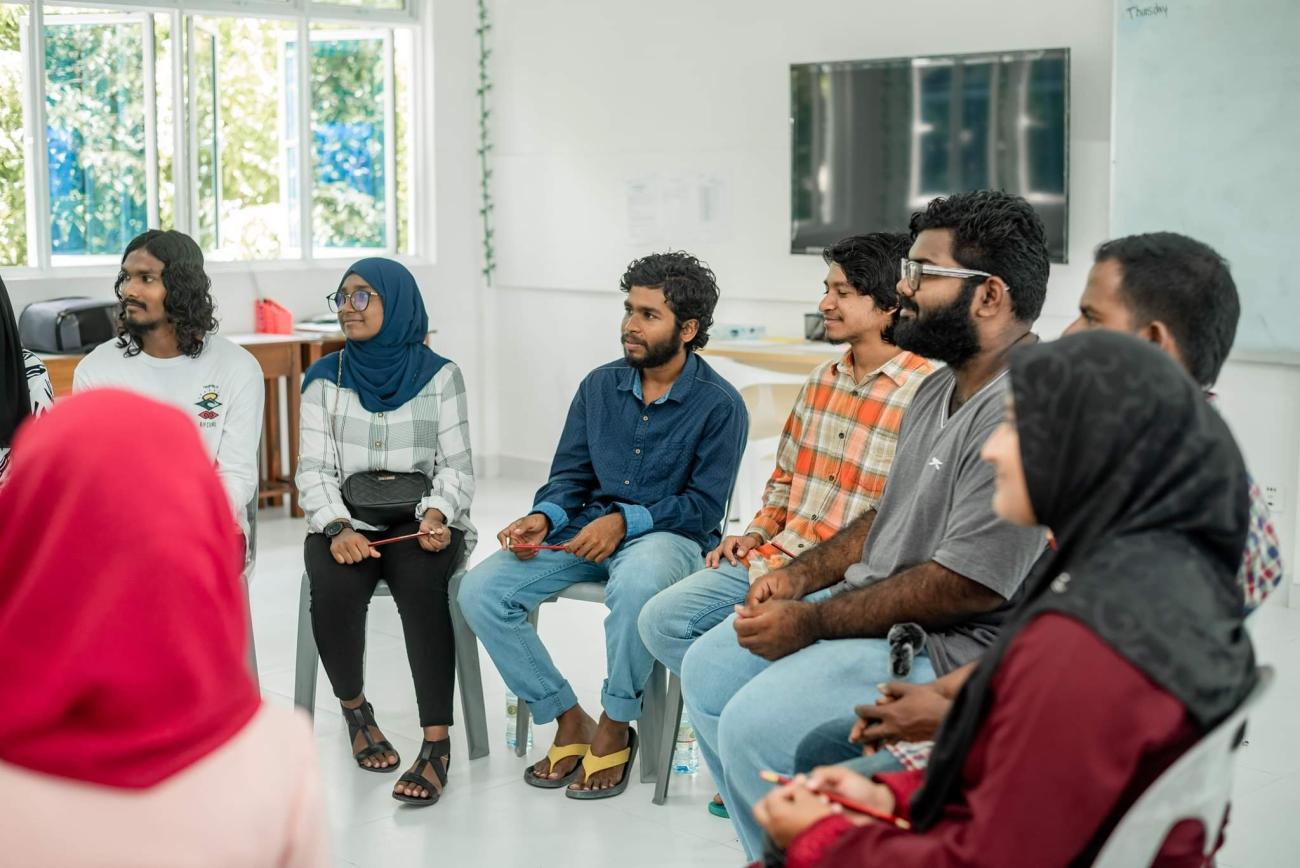Fostering the power of young Maldivians

Young Maldivians make up close to 40% of the population, yet they do not hold a lot of hope for their future. A recent survey supported by USAID showed that 94% of them believe young people should be more involved in political decision-making, and only 47% thought that their local councils engaged with the community effectively.
While strengthening academic and employment opportunities and the inclusion of young people in decision making has been highlighted as a priority for the Government, donors and civil society, the tangible impacts of the policies are slow to be felt by young people, with 28% of youth aged 15 – 35 being out of employment, education or training.
The UN Resident Coordinator in Maldives, Catherine Haswell, heard similar concerns during her visits last year to twenty of the 182 local islands that make up the archipelagic country in the Indian Ocean. That inspired Ms. Haswell to lead the design of the UN Maldives Youth Strategy, which places young people at the heart of the UN’s development efforts.
“I was meeting plenty of enthusiastic people, who wanted to become engaged in UN’s efforts, while noticing that in our daily work, most of our conversations were with Government ministries and traditional partners. I decided to reach out directly to young people through social media, to find young people in their own spaces. From here, the UN Maldives Youth Strategy was born,” said Ms. Haswell.
“We need young voices to be heard – and policies and decisions that give practical opportunities for meaningful work, education opportunities. The UN has a unique role to play here to help get sensitive issues on the table of decision makers, with the unique policy advice that UN agencies provide to Government”, she added regarding the Youth Strategy.
Also stemming from the visits and showcasing its convening power, the UN in Maldives helped a group of local young volunteers organise a community event with over 200 people last year, providing logistical support and staff. The Kandu Faaraverin (“Ocean Guardians”) Games included challenges to surmount across the greater capital area, to highlight the impact of human actions on the oceans. This initiative started a movement of young people which continues to gain momentum and plan new activities. Because there are limited opportunities for young people to mobilise, and with credibility to ask for partnerships and resources, the Resident Coordinator Office and the UN country team were instrumental in making it happen, creating a space for youth engagement.
And this was not the only one. The UN in Maldives also convened people in the islands around a youth meeting space named Zuvaanunge Holhuashi, to discuss issues facing the community. Mental health, access to justice, healthy relationships, and employment were some of the challenges the young participants highlighted.
“With this initiative, young people have more opportunities to give their opinions and views in decision making process, governance of the nation, and how policies are formulated as well. Getting the youth’s contribution and involvement in developing and executing high impact projects and policies are important for the development of the Maldives,” said 25-year-old Moosa Meekail Ahmed Jaleel.
The youth meeting space will be carried forward to other islands, and across the country, this year. The Resident Coordinator’s leadership has established the framework for the UN Maldives’ team to share its powerful platform with young people in leadership, public engagement, and decision making for their future.
“Young Maldivians are burning with creative ideas on how to do things better. We don’t need to teach them or empower them. We just need to give them the spotlight and listen to the leaders of the future,” said Ms. Haswell.
To learn more about the work of the UN in the Maldives visit Maldives.un.org













